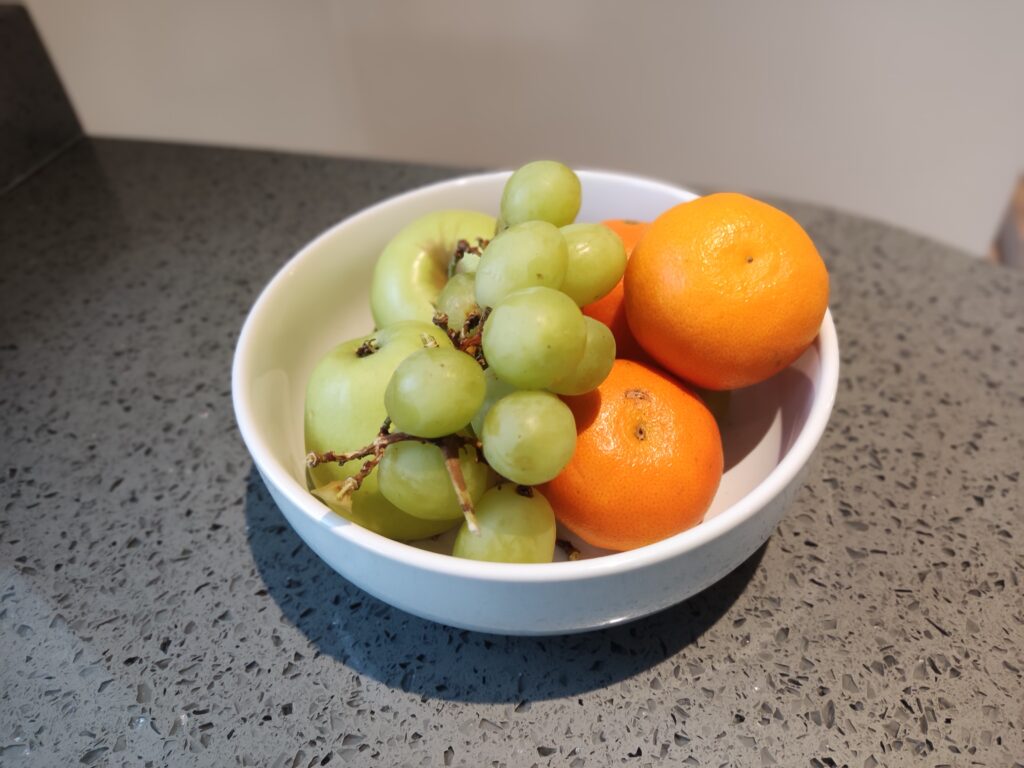Children with ASD can have any number of issues with food, in this article we explore the relationship between autistic children and fruit.
Autism and eating fruit
The motivation for this article came from having a long conversation with another parent.
She described how her autistic daughter is essentially obsessed with eating or even just holding fruit.
This amazed me because our son is the complete opposite, I don’t think he has ever tried more than a nibble.
After then researching further online it seems that these polar opposites are quite common.
Parents either report their child as having too much or too little fruit.
Autistic child eating too much fruit
In no particular order let’s look into the reasons why an autistic child may eat too much fruit.
Sensory needs
Ahh the old favourite of autistic children and their sensory needs.
The obvious factor here is that the child may well like the sensation of fruit in their mouth. Fruits can be unique in their textures what with squidgy, juicy components.
Even the feeling of biting into an apple or a piece of orange will set off a series of bursts of juice into a child’s mouth.
For many these bursts of juice go unnoticed, but for some kids with autism they are pleasurable.
It won’t even be the sensory factors in their mouths which appeal. The actual act of holding and feeling fruit can also feel nice to some autistic kids.
This could be the shine of an apple or the bumps on a raspberry.
Natures candy
Whilst fruit has a number of healthy benefits for children, most types also have high sugar content.
I heard the phrase ‘natures candy’ a long time ago and it stuck as it’s a clever way of describing fruits.
No of course it’s not like eating a chocolate bar but with piles and piles of fruit the sugar content adds up.
This sweetness will not go unnoticed on our kids as well. It is therefore very possible that an autistic child is craving that sweet sugar hit which is along for the ride.
Habit/routine
While the sensory factors and the sweetness of the fruit are likely to be drivers in this preference, also possible is the development of a routine.
Most parents of autistic children will have experienced routines developing quickly in their household.
Well these routines often extend to eating preferences.
It therefore may be that an autistic child has just simply gotten into the habit of desiring fruit throughout the day.

What about an autistic child who doesn’t eat fruit
Very relevent to our household is the fact that some autistic children are repulsed by the thought of eating fruit.
It’s often the case that autistic children will look at foodstuffs and be puzzled that mom is even considering them to be food.
The reasons behind this repulsion will be likely the reverse of the above.
Sensory inputs which may be pleasurable for some autistic children, will be repulsive for others.
The squish of the texture or the shooting of juice can set off a chain of uncomfortable feeling for some autistic kids.
This is why some autistic children get into a rut of only liking one or two types of foods.
Often this is down to the fact from a sensory point of view they know they are safe and won’t be subjected to strange or uncomfortable tastes.
This adversion can become so engrained that it is very hard to break.
How to get an autistic child to eat more fruit
If you have decided you want to get your autistic child to eat more fruit, be aware it won’t be easy.
Food preferences and aversions can be some of the hardest behaviours to break.
What you can try is to provide the fruit in different forms. An example of this would be to blend fruit or buy pouches.
These options just provide a completely different way of ingesting the foodstuffs. Picture in your head how biting into an apple feels, now picture a spoon full of puree.
Completely different experience.
You could even experiment with warming the fruit through or keeping it in the refrigerator. These hot and cold sensations may make all the difference to your child.
Another thing to try would be a campaign of trial and error.
Attempt different fruits with your child and even let them select the fruit in supermarkets.
Having that small amount of control can make a difference for autistic children who crave autonomy.
Summary – Autistic children and fruit
If you are concerned about an autistic child’s obsession with eating fruit, it is important to talk to their doctor or a registered dietitian.
They can help you to determine if the child’s obsession is causing any problems and can offer suggestions for how to manage it.
Conversely if you are struggling to get your child to eat any fruit then mix it up where you can.
Consider different fruits and in different forms until hopefully your child finds one they like.
Any tips or ideas?
We would love to hear from you if you have got any techniques or ideas for our readers to try.
Be sure to leave a comment if any of the above has helped or if you have any ideas we can add to this article.
Also be sure to search for any other articles you might find helpful.
Try for example searching below for topics like ‘meltdown’ or ‘communication’.

